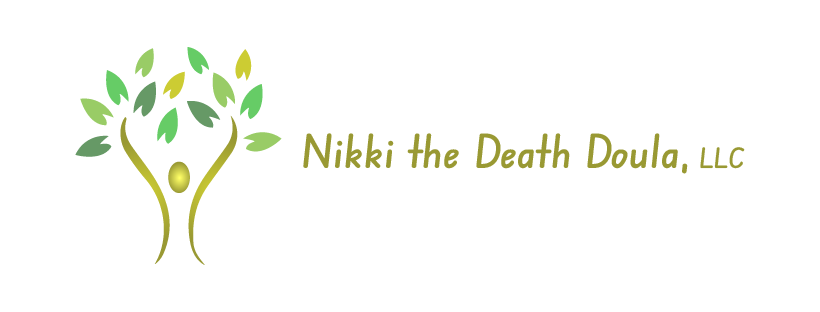How Death Doulas Can Help Ease Family Conflict
If you’ve ever seen a family trying to make end-of-life decisions together, you know it can get… um….messy. Even the most loving families can find themselves bickering over medical choices, funeral plans, or what Mom “would have wanted.” (OMG this one kills me) Grief has a way of bringing old wounds to the surface and when emotions are high, logic tends to take a backseat
That’s where a death doula can quietly step in and bring a little calm to the chaos.
The Family Battlefield
End-of-life care isn’t just about death and dying. It’s also about the living part leading up to it. And trying to make sense of it all.
Something I see a lot; One sibling wants to “do everything possible.” Another insists on comfort care only. Someone’s trying to find the will. Someone else is crying in the hallway. Everyone’s tired, scared, and trying to do the right thing. They just have different definitions of what that means.
Add in years of family dynamics (like that fight from 1998 that never really ended) and you’ve got a recipe for emotional wildfire.
When conflict flares during an already sacred and vulnerable time, it can rob families of the chance to truly be present.
Enter the Death Doula (picture me in a flowy cape here)
A death doula isn’t there to take sides. We’re there to hold space. For everyone. Think of us as neutral guides who help bring clarity, compassion, and grounding to a situation that often feels like quicksand.
Here’s how we help ease family conflict in real, practical ways:
1. Creating a Safe Space for Conversations. For Everyone.
Many families avoid talking about death until they have no choice, which means the conversations usually happen in crisis mode. No bueno.
A doula can facilitate those talks early, helping loved ones express fears, wishes, and values before a medical emergency forces the issue.
We set up the room for honesty. We ask open questions like, “What does comfort mean to you?” or “What would feel most peaceful for your loved one?” When people feel heard, they stop shouting to be understood.
Let me repeat that: When people feel heard, they stop shouting to be understood.
2. Translating Between Love Languages
Not everyone shows love the same way. One person’s “fighting for every treatment” might come from the same love as another’s “let them rest.” A doula helps reframe those differences, so instead of seeing opposition, families see shared care expressed in different forms.
Sometimes it’s as simple as saying, “You both want what’s best for Mom but you just have different visions of what that looks like.” That one sentence can change the whole temperature in the room.
3. Grounding Through Education
Fear breeds conflict. And most fear around death comes from not knowing what to expect. When a doula explains the dying process, what’s normal, and what choices are available, the mystery shrinks and the panic softens. Understanding replaces assumption. And when families understand what’s happening, they fight less about what they can’t control.
4. Supporting Each Person Individually
A good death doula sees the whole family ecosystem. We notice the daughter who’s taking charge but hasn’t slept in three days. The son who’s angry because he feels helpless. The partner who can’t bring themselves to talk about “after.”
We offer support tailored to each person! A listening ear, grounding tools, a compassionate presence. Whatever it takes so everyone has somewhere to put their pain other than at each other.
5. Centering the Dying Person’s Voice
When families start pulling in different directions, a doula gently brings the focus back to the person at the center of it all. “What did they want?” becomes the guiding question. (Hopefully, we got to know them enough that we already know what they wanted)
Even if those wishes were never formally written down, we help uncover them through stories, values, and shared memories. This re-centering can dissolve a lot of tension. It reminds everyone that love is the reason they’re there.
I’ve seen many defenses let down after a good session of sharing memories.
6. After the Death: Helping Heal the Fractures
Conflict doesn’t always die with the person. Sometimes the hardest part comes after, when grief exposes everything that’s unresolved. A death doula can help families process guilt, resentment, or regret so those feelings don’t calcify into lifelong rifts.
Grief is heavy enough without adding family fallout to the load.
The Doula Difference
Death doulas don’t have magic wands (Man, I wish I did though). What we have is time, presence, and neutrality. Three things that most families desperately need at the end of life.
We’re not there to fix the pain, but to make sure it doesn’t swallow people whole. We help families breathe, pause, and remember: you’re all on the same side here.
Because when the noise quiets down, love is usually what’s left.
